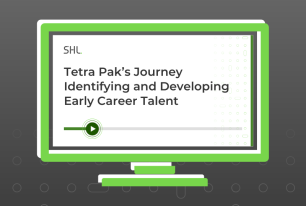From Pool Tables to Coffee Shots: Decoding the Motivations of Gen Z in the Workplace
Gen Z: Lazy and entitled or the catalysts for a workplace revolution? Discover their motivations and how organizations must adapt to thrive.
Share
Narayana Murthy, the founder of Infosys, has recently made a controversial statement suggesting that young people should work 70 hours per week. This statement has sparked a heated debate and has received criticism from the younger generation. Additionally, a TikToker named Gabrielle Judge has started a viral hashtag, #lazygirljob, encouraging individuals to seek remote jobs with good pay and minimal responsibilities. These incidents have led people to question whether Gen Z, the generation targeted by Murthy's comment, is being unfairly labeled as lazy and entitled. However, it is essential to question whether this labeling is fair, considering the evolving dynamics of the modern workforce.
By 2032, Gen Z and Millennials are projected to comprise 70% of the total workforce in the US, with Gen Z alone making up nearly 30% according to the US Bureau of Labor and Statistics. As a result, it is crucial to address the motivation of these younger generations to effectively cater to their needs in the workplace. Organizations must understand and address the motivations of the labor force of tomorrow to achieve optimal productivity.

We have conducted an extensive research study on the motivations of Gen Z individuals, utilizing our specially designed Motivation Questionnaire (MQ). Our study involved surveying over 10,000 candidates who belong to Gen Z, following the year 2020. The MQ is a comprehensive tool that evaluates an individual's drive and aims to identify the specific factors that enhance or diminish their motivation levels. Although primarily targeted towards managerial, professional, supervisory, or similar level staff, it can also complement other personality assessment tools such as the Occupational Personality Questionnaire (OPQ).

The questionnaire effectively assesses 18 key factors that contribute to workplace success. Drawing from our study findings, we have gained valuable insights into what motivates and demotivates Gen Z, the generation that comprises the workforce of tomorrow. In this blog post, we aim to provide managers and HR professionals with some valuable suggestions to keep in mind while working with Gen Z employees, to effectively motivate them and ensure their long-term retention within the organization.
Top 3 motivators at the workplace for Gen Z
- Personal Growth: One of the key findings is that Gen Z places a high emphasis on personal growth. 99% of Gen Z candidates who gave our survey said they get motivated when the company prioritizes the growth of the employee too. They value opportunities for training, development, and acquiring new skills. When managers prioritize their employees' career goals and provide relevant growth opportunities, Gen Z employees become more engaged and less likely to leave their jobs. Research shows that Gen Z employees who feel cared for at work are 3.3 times more likely to look forward to coming to work. By prioritizing personal growth, managers can cultivate a motivated workforce that recognizes the value of their development and its impact on organizational success.
- Personal Principles: Gen Z also gives a lot of importance to personal principles. They prioritize upholding ethical and quality standards when forming opinions about companies, which HR and managers should take into account. The PERSONAL PRINCIPLES scale measures the extent to which people need to be able to uphold ideals and conform to high ethical and quality standards. It is important for organizations to ensure that their actions align with these principles to attract and retain Gen Z employees.
- Career Progression: Another factor that motivates Gen Z is progression. They are driven by having good promotion prospects and opportunities for advancement. If they feel their careers are stagnating or that promotion will not be fair, their motivation is likely to suffer. Gen Z stands out as a cohort that embraces continuous learning at work. They actively seek opportunities to expand their knowledge and skills, as evidenced by their increased engagement in online learning platforms like LinkedIn, 67%of Gen-Z learners spent more time learning in 2020 on LinkedIn’s platform than they did in 2019. Altogether, they logged 50% more hours watching online courses than learners from any other generation.
Top Demotivating factors for GenZ:
- Fear of Failure: The majority of Gen Z report being highly demotivated by criticism or negative judgment with 56.74 % of Gen Z workers identifying fear of failure as strongly demotivating.. It is important for managers, bosses, and HR professionals to adopt a considerate approach and cultivate empathy within their teams. Positive reinforcement proves to be more effective in motivating Gen Z employees compared to criticism. Creating a supportive environment where Gen Z can thrive and unleash their full potential is crucial.
- Immersion: The biggest demotivator for Gen Z is immersion i.e., when boundaries blur between work and personal life. They prefer to have clear boundaries and do not want work to encroach beyond normal working hours. They value work-life balance and flexibility. Gen Z is known for prioritizing their personal lives and aspires to have a career that allows them to continue enjoying life. Organizations should consider these preferences and create a work culture that respects boundaries and supports employees' personal lives.

What if GenZ’s ways of working is the right ‘Solulu’ to the utopian workplace? Iykyk.
Gen Z's unique upbringing in a technology-driven world, coupled with significant events like the recession and the pandemic, has shaped their progressive mindset and expectations. Rather than dismissing them as lazy or entitled, organizations should embrace their perspectives and adapt to their needs. Gen Z is reshaping the workplace landscape by transforming what were once considered perks into standard expectations. By recognizing and prioritizing the key factors that motivate Gen Z, organizations can create a workplace environment that attracts top talent, reduces burnout, and embraces the revolutionary perspective that these generations bring to the table.
Check out SHL Labs’ resources library for more insights on workforce trends.











